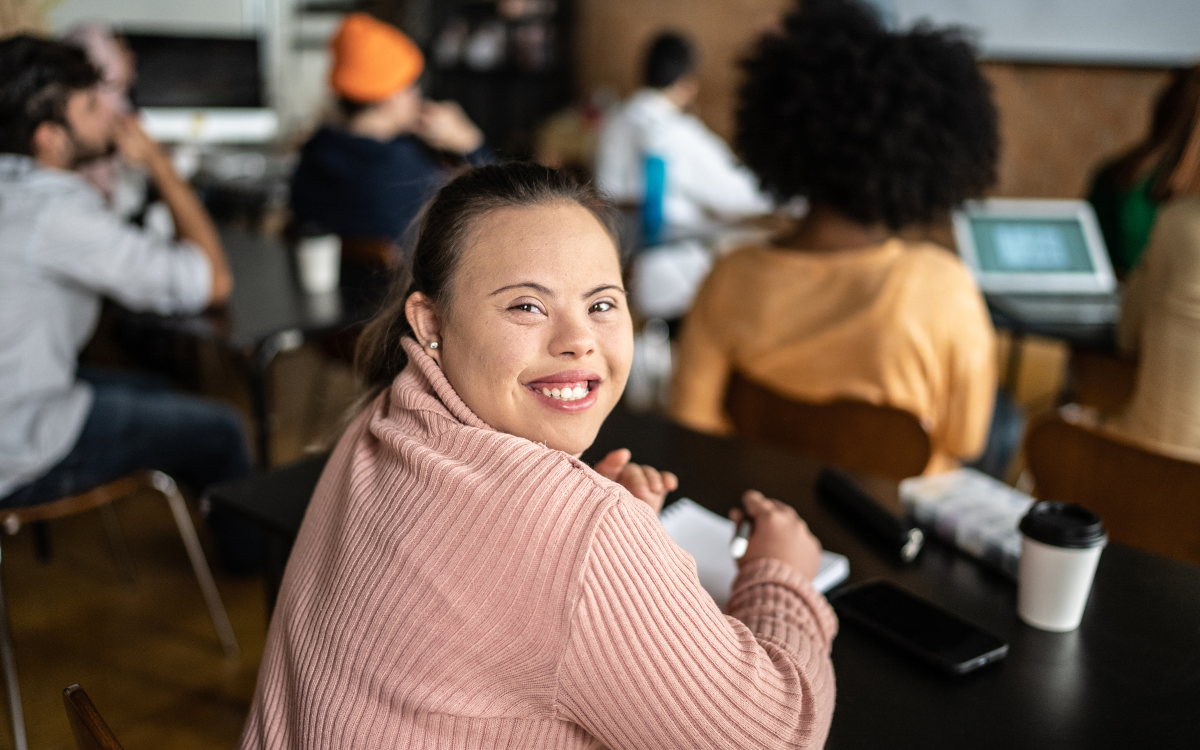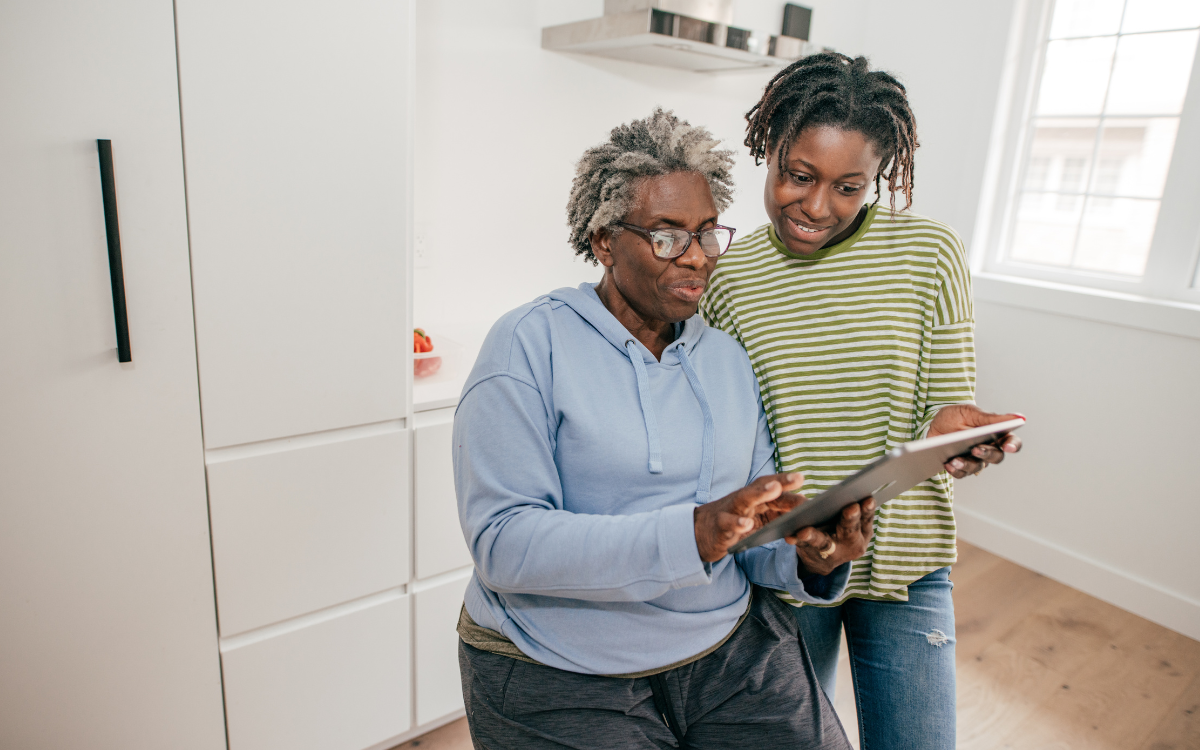Self-care is a powerful tool that can make a big difference in our quality of life. For adults with disabilities, self-care not only promotes wellness but also supports independence and self-determination. We’ve got some easy tips that will help you improve your self-care skills so that you can support yourself and achieve your goals.
10 Self-Care Tips for Adults with Disabilities
Self-care helps you stay healthy, happy, and independent. What that means to you might look different than it does for someone else. Be open to creating a self-care routine unique to you! Here are 10 simple self-care tips that can help you get started.
1. Move Your Body
Exercise to keep your body strong. You can move your body in a way that works for you. This can include sitting exercises, adaptive yoga, or wheelchair-friendly workouts to keep your heart pumping and muscles moving.
2. Mind Your Mental Health
Schedule time to give your brain a break. Practice relaxation techniques like deep breathing, or try something peaceful like aromatherapy. Read a good book or take a walk with a friend.
It’s also wise to get in touch with a counselor or therapist. Having someone to talk to regularly about your feelings and challenges helps you feel more confident about overcoming them.
3. Eat Well
Your body and mind need good nutrition. A healthy and well-balanced diet helps balance blood sugar and keep energy levels up. It also helps regulate mood and keeps muscles and bones strong.
Don’t forget to keep dietary restrictions or preferences in mind when you shop. If you need sensory-friendly foods, for example, brainstorm a list of safe options to take with you.
And don’t forget the importance of staying hydrated! Drink plenty of water every day. If you struggle with drinking water, try adding some sugar-free drink powder to a bottle or pitcher. That way, you can get your fluids while also enjoying a tasty treat!
4. Healthy Hygiene
Keep a consistent hygiene routine throughout the day. This includes bathing, oral care, and grooming. Washing your body, brushing your teeth, and grooming yourself regularly helps you to feel confident and stay healthy.
Do what you can to help yourself feel good. Maybe that means always washing your hands after you use the restroom, or maybe it means brushing your hair every morning.
5. Sleep Routine
Create a peaceful, cozy sleep environment to make it easier to get regular and good sleep. Set a consistent bedtime and routine to wind down and prepare your body for rest, too. Make sure you get enough rest to keep your body and mind functioning at their best.
6. Social Connection
Spend time with friends, family, or people who support you. Participate in social activities, online groups, or support networks. This keeps you feeling connected, fosters a sense of belonging, and is a great source of emotional support.
7. Personal Safety
Be sure your home is safe, and there are no unnecessary hazards. Use things like grab bars and mobility aids if you need them. Make helpful home modifications like removing clutter or simplifying appliances. And, of course, make a plan for emergencies.
8. Self-Advocacy
When things get tough or you need help, don’t be afraid to speak up. Learn about your rights, and stand up for yourself. Being aware and informed helps you navigate systems and services with confidence.
9. Device Maintenance
Make sure the tools you need to thrive are working at their best. Check your mobility devices, hearing aids, or any other equipment you use regularly to make sure they are working properly. If they need maintenance, make sure you schedule service or order parts or replacements.
10. Keep a Journal
Whether you use your phone, a tablet, a notebook, or even a piece of paper, find some way to keep a journal. Write down your thoughts, feelings, and desires. Whatever comes to mind goes on the page.
Use your journal as a safe place to open up and a tool you can use to stay on track with your goals.
Find Support That Puts Your Needs First
Remember, it’s okay to take time for yourself. Self-care makes us feel more confident and independent. Taking care of your health and wellness ensures you’re living your best life.
At NeuroNav, we understand that self-care for adults with disabilities is important for overall health, confidence, and independence. Reach out to NeuroNav today and schedule a free consultation to learn more about how our independent facilitation services can aid you on your path to self-determination.



.jpg)
-1.png)